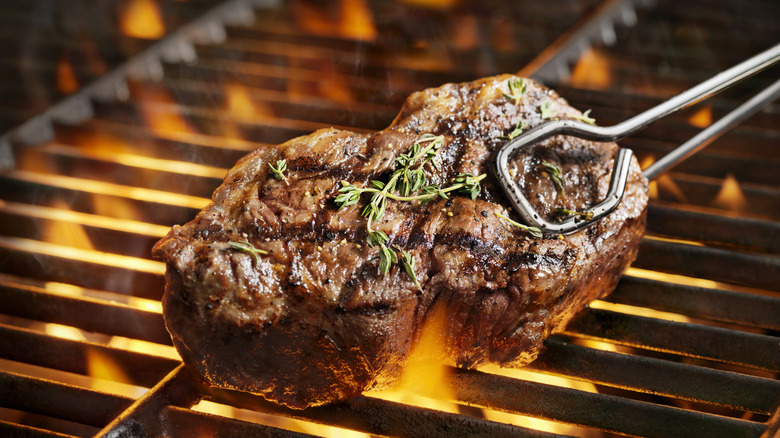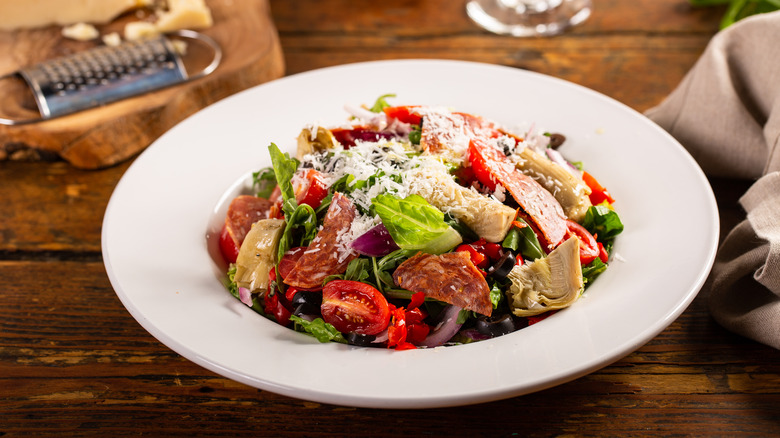Wolfgang Puck's Top Tip For Not Overdoing Your Seasoning
Wolfgang Puck is a world-renowned chef and restauranteur who isn't shy about providing exceptional cooking tips. When it comes to seasoning food, the master chef has a simple yet essential piece of advice to elevate your home-cooked dishes. Puck recommends adding seasoning gradually as you cook as opposed to adding it all in one fell swoop. That way, you can always add more seasoning if you feel a dish is lacking (while you can't remove seasoning after it's been added).
There's another important aspect of this tip to consider, and that is tasting the food you're preparing. You have no idea if a dish is under or over-seasoned unless you actually sample it, so you must take time to try the dish as you're cooking. While the finished meal will be in line with your specific taste preferences, tasting is the only way to grow and learn as a cook. Of course, this great tip isn't the only sage piece of seasoning advice Puck has up his sleeve.
How to expertly season a steak, according to a master chef
A juicy, perfectly cooked steak is an achievement all chefs hope to make. Puck has some choice recommendations for getting the seasoning just right when cooking beef, which he shared with The Independent. The chef urges cooks to slather the steak in olive oil prior to seasoning, as the oil will help keep the herbs and spices in place while the meat cooks. Puck also recommends cutting your own fresh herbs to achieve the perfect flavor.
As for which herbs pair best with steak, beef is a special case thanks to its inherent bold flavors. As a result, it's best to use herbs with equally robust flavor profiles, such as rosemary. Rosemary is often described as having a minty flavor, with tinges of pine. Thyme is another fine selection when it comes to steak, as this herb offers an earthy flavor that incorporates elements of lavender and citrus. While these options and techniques are great for hot foods like steak, how do you get the most out of cold dishes?
Do you season hot and cold food differently?
Puck highlights different processes for seasoning cold foods and hot foods, which seems to be standard throughout the culinary community. Foods that are served cold tend to have a subtler scent and flavor, while hot foods tend to be more robust in both categories. Accordingly, cold food can usually withstand a little more seasoning than you would use on a hot dish without negatively impacting the flavor. You can also add seasoning at different times, such as incorporating salt prior to placing the item in the refrigerator, then adding more once the item is cold.
Along with salt, herbs can also really elevate the flavors of a cold dish. In this case, you must time the herb addition correctly to get the most bang for your buck. That's why it's recommended that herbs are integrated into a cold dish well before you plan on serving it, as that will provide time for the herbs and ingredients to fully mesh. Aim for at least a few hours before mealtime, but letting herbs incorporate into the recipe overnight will create the best results.


